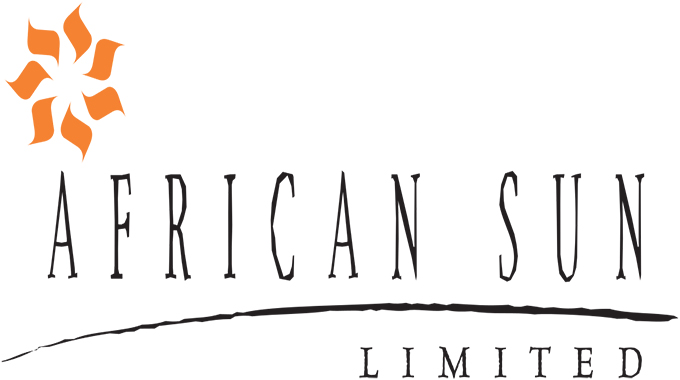Agribank bounces back

Agribank has been experiencing some operational difficulties in the last few years but is said to be recovering and is expected to benefit from the funds and other funds anticipated to come from other sources in the near future.
Zimbabwe is battling a serious credit crunch since 2009 when Government adopted multiple currencies in a bid to bring stability in the economy following close to a decade of hyperinflation and acute foreign currency shortages.
Speaking at the signing ceremony, Finance Minister Tendai Biti said the IDC facility was a “watershed transaction” that would increase productive capacity in several key sectors.
“It will also signal that Zimbabwe truly is open for business and that South Africa continues to play a supportive role in Zimbabwe’s economic recovery,” said Minister Biti.
Sources close to Agribank say the bank is moving towards obtaining further lines of credit to the tune of US$70 million in the not-too-distant future.
“This is just the beginning of new things at Agribank. Efforts are currently underway to aggressively attract additional lines of credit of at least US$70 million. This will bring to US$100 million the total lines of credit secured for Agribank.
Market watchers opine that having passed the test of the IDC SA, which conducted a thorough due diligence exercise, other international financiers will find it easy to extend similar lines of credit.
Agribank is working closely with a local company, Neverseez Capital, and Musa Capital of South Africa, who are understood to be on the verge of sealing other credit lines, which are significantly higher than the US$30 million IDC facility.
If the envisaged deals bear fruit, Agribank, whose balance sheet has received a major fillip as a result of the IDC loan facility, would become one of the biggest banks in the country.
Neverseez Capital executive director Mr Ayanda Nyanga and Musa Capital senior associate Mr Rebone Mabusela, who were advisors to the transaction, attributed the success of the deal to robust systems and procedures adopted by the bank as well as the bank’s history of low bad debts to loan book ratio.
Agribank chief executive officer Mr Sam Malaba indicated that the bank was now well positioned to move forward especially after it adopted a five-year strategic plan punctuated by clear goals, financial objectives and steps to be taken to realise the bank’s aspirations.
The bank undertook a voluntary retrenchment exercise last year and closed nine branches “which were not in strategic locations” in a bid to contain spiralling costs.
Mr Malaba said after containing high cost structures, Agribank is now focusing on repackaging its product offerings to current and potential clients and the sealing of long-term and affordable lines of credit would help the bank to improve its product range.
The country’s manufacturing sector is struggling to increase capacity utilisation due to a myriad of challenges, chief among them being the shortage of fairly priced credit lines. Most financial institutions are offering short-term loans of between 30 and 90 days but at punitive rates.
However, Agribank’s credit lines would be available at competitive Libor-indexed interest rates and is structured to ensure that a large portion of the funding will be used by Zimbabwean companies to purchase South African goods and services, hence providing revenue opportunities to South African firms.
The IDC US$30 million facility with Agribank becomes the first transaction of its kind since the signing of the Bilateral Investment Promotion and Protection Act (Bippa) between South Africa and Zimbabwe in 2010.
The Bippa seeks to create favourable conditions for investment between South Africa and Zimbabwe; provide security of tenure to South African investments in Zimbabwe; and unlock opportunities for the Zimbabwean local industry to access lines of credit from South Africa.
In that regard, the IDC SA/Agribank deal is believed to be a significant step towards easing the liquidity crisis bedevilling the country’s financial services sector and consequently boost economic activity in Zimbabwe.
Agribank is one of the country’s oldest banks, having been established 82 years ago, and is the leading provider of finance to the agricultural and industrial sectors. It also provides banking services to some of the country’s largest commercial organisations and, in recent years, has extended its client base to include the small to medium enterprises (SMEs) and consumer markets.
Agribank has developed the country’s largest branch network, with 44 branches especially in previously unbanked communities.
The bank is expected to use the six-year term facility from IDC to on-lend to its blue chip and medium-sized clients, some of which are listed on the Zimbabwe Stock Exchange, with emphasis on increasing their production capacity.
Mr Malaba said US$20 million of the IDC facility would be allocated to firms operating in the agri-business and manufacturing sectors while US$10 million will be on-lent to the Industrial Development Corporation of Zimbabwe, adding that Agribank had been given a clean bill of health.
“Agribank does not have a non-performing (loan) book. The provision for bad and doubtful debts over the past four years has been 1,6 percent as of last year; 1,2 percent in 2009, 2,7 percent in 2008 and 1,2 percent in 2007.
“Agribank’s accounts are audited annually and the current auditors for the bank are Ernst & Young. Furthermore, IDC SA did a thorough due diligence on the bank and would certainly not have lent money to Agribank if it had a high bad debt ratio,” explained Mr Malaba.-The Sunday Mail








Comments